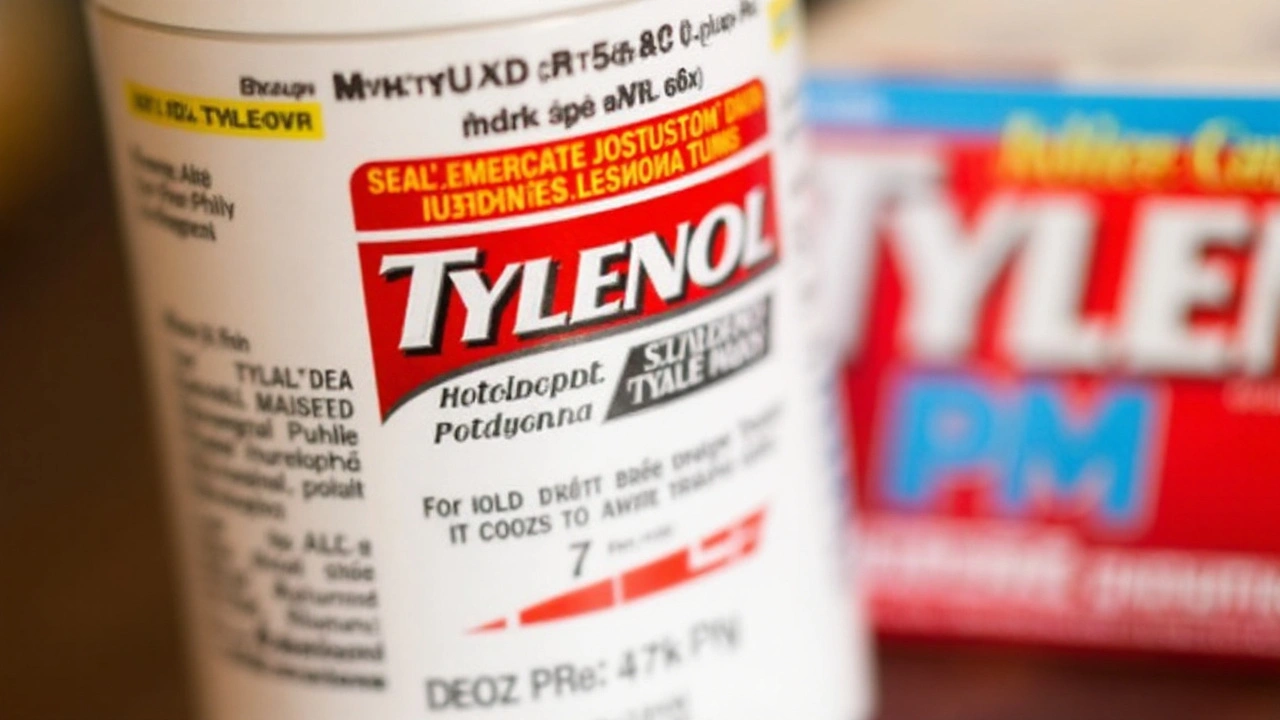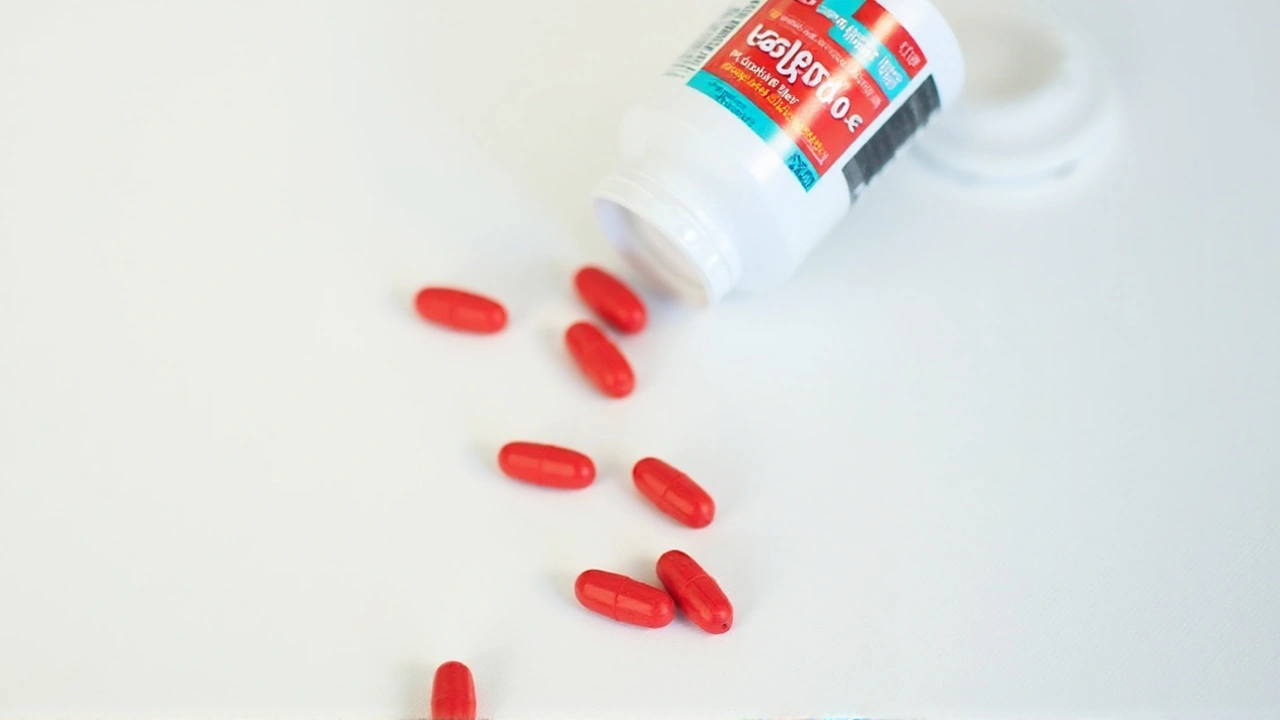Acetaminophen, known as Tylenol in the U.S. and paracetamol elsewhere, is the go‑to pain and fever reliever for most pregnant women. More than half of all expectant mothers reach for it at some point, trusting the decades‑long reputation of safety. That trust is now being questioned after a wave of new studies suggested a possible link to neurodevelopmental disorders in children.
What the New Studies Show
In late September 2025, FDA Commissioner Martin A. Makary sent out a notice that pulled the spotlight onto the controversy. He said the agency has seen “increasing evidence” that taking acetaminophen during pregnancy could be tied to a greater chance of autism spectrum disorder (ASD) and attention‑deficit/hyperactivity disorder (ADHD) in offspring. Importantly, the FDA stressed that the data show an association, not proven causation, and that other research paints a different picture.
The most talked‑about analysis comes from a team at the Icahn School of Medicine at Mount Sinai, with Harvard’s Andrea Baccarelli as senior author. Published in BMC Environmental Health, the researchers applied the Navigation Guide systematic‑review method to 46 individual studies from around the world. Their conclusion: there is consistent evidence pointing toward an association between prenatal acetaminophen exposure and higher rates of ASD and ADHD.
Contrast that with a massive Swedish cohort study that appeared in JAMA. Researchers followed 2,480,797 children born between 1995 and 2019. When they compared children whose mothers took acetaminophen with those whose mothers didn’t, initial models hinted at a slight rise in autism and ADHD risk. But when they tightened the analysis using full sibling pairs—essentially matching each child with a brother or sister who shared the same genetics and home environment—the link vanished. The Swedish authors argued that earlier findings might be driven by confounding factors such as maternal health, socioeconomic status, or other medication use.
Both studies are robust, but they answer different questions. The meta‑analysis aggregates many small to medium studies, each with its own design quirks, while the Swedish work leans on a huge, uniform dataset but focuses on a specific population. The clash underscores why scientists haven’t reached a consensus yet.

Guidance for Expectant Mothers and Clinicians
So what should a pregnant person do when a headache strikes or a fever spikes? Experts say the answer lies in balance.
- Use the lowest effective dose for the shortest time possible. A single 500‑mg tablet might suffice for a mild headache, but stacking multiple doses over weeks is where concerns grow.
- Consult a healthcare provider before starting a regular schedule. Doctors can weigh the risk of untreated fever—known to increase the odds of neural‑tube defects and preterm birth—against the potential, yet unproven, neurodevelopmental risk.
- Consider timing. Some researchers suggest that chronic use throughout the entire pregnancy carries more risk than occasional, short‑term use in the third trimester.
- Explore non‑pharmacological options when feasible: hydration, rest, cool compresses, or gentle exercise may help alleviate mild symptoms without medication.
The FDA, while acknowledging the new data, still ranks acetaminophen as the safest over‑the‑counter analgesic for pregnant women. Alternatives like aspirin or ibuprofen have clear links to complications such as placental bleeding or premature closure of the fetal ductus arteriosus.
Professional bodies are stepping in, too. The Society for Maternal‑Fetal Medicine (SMFM) released a statement urging clinicians to discuss the emerging evidence with patients, emphasizing shared decision‑making rather than blanket bans. Their guidance mirrors the Mount Sinai team’s stance: limit exposure when possible, but don’t deny a medication that can prevent high fevers, which are themselves dangerous.
Public discourse has become more heated, especially after political figures started citing the FDA notice in debates about autism rates. Scientists caution against jumping to conclusions; observational studies can’t prove that acetaminophen causes ASD or ADHD, only that they appear together under certain conditions.
In practice, the conversation often centers on three questions:
- Is the mother’s pain or fever serious enough to warrant medication?
- Can the symptom be managed with non‑drug methods?
- If medication is needed, what is the smallest dose that will work?
Answering these questions requires a personalized approach. A woman with chronic migraines may need a different plan than a first‑time mother who only occasionally experiences a low‑grade fever.
Looking ahead, researchers say more definitive answers will likely come from long‑term studies that track drug levels in the mother’s bloodstream and the child’s development over decades. Until then, the medical community leans on the precautionary principle: treat the mother’s immediate health needs while keeping an eye on any potential long‑term implications.
For now, pregnant people should feel empowered to ask their doctors about the risks and benefits, keep a medication diary, and avoid self‑prescribing high‑dose regimens. The conversation is evolving, and staying informed is the best way to navigate the uncertainty.


 Sports
Sports
Devendra Pandey
September 24, 2025 AT 18:34When we speak of safety in pregnancy we tread a thin line between certainty and speculation, a line that has been drawn repeatedly throughout medical history. The recent wave of acetaminophen studies is yet another illustration of how observation can masquerade as proof, especially when the stakes involve unborn lives. One must remember that correlation does not equal causation; the Swedish sibling analysis reminds us that shared environment can produce patterns that vanish under stricter scrutiny. Yet the meta‑analysis of 46 studies, despite its heterogeneity, finds a consistent thread, a whisper that cannot be dismissed outright. Philosophically, the precautionary principle asks us to weight the known harms of fever against the unproven risks of a common analgesic, a calculation that is seldom clean. The fetus and the mother form a dyad, each with its own thermoregulatory needs, and to ignore fever is to gamble with neurodevelopmental outcomes of its own. Conversely, to blanket‑ban acetaminophen based on associative data would deny an effective tool for maternal comfort and could drive patients toward untested alternatives. The data also reveal the influence of socioeconomic variables, a reminder that health inequities are entangled with medication use. In societies where access to medical advice is limited, a single tablet of acetaminophen may be the only feasible intervention. Moreover, the biological plausibility for a link remains tenuous; the drug does not cross the placenta in concentrations that are known to be neurotoxic. Still, the ethical dimension obliges us to consider even a modest increase in autism or ADHD risk as morally significant. This is not an argument for hysteria but for transparent dialogue between clinicians and patients, a dialogue that respects both the autonomy of the mother and the vulnerability of the child. The FDA’s cautious language-acknowledging association but not causation-mirrors this balance. As researchers continue to refine their methods, we should hold space for uncertainty without succumbing to paralysis. In practice, the lowest effective dose for the shortest duration remains a sensible compromise. Ultimately, the debate itself is a testament to the complexity of medicine, where data, philosophy, and human experience intersect in ways that defy simple answers.
manoj jadhav
September 24, 2025 AT 19:30I see both sides of the argument, and I think it’s crucial we stay calm, weigh the evidence, and keep the conversation constructive-after all, most pregnant people just want relief from everyday aches, and we can’t deny that-so let’s encourage doctors to discuss dosage, timing, and alternatives, while also acknowledging the emerging studies, because balance is the key, right?
saurav kumar
September 24, 2025 AT 20:20Occasional, low‑dose use seems reasonable.
Ashish Kumar
September 24, 2025 AT 21:10It is indefinately clear that the moral compass of our medical community should not be swayed by sensational headlines; the rigorous methodology of the Swedish cohort, despite its vast sample, still leaves room for confounding, and we must not overlook the fact that fever itself poses a definable threat to fetal development. Therefore, to vilify acetaminophen without a solid causal pathway would be an overreach, a dramatization that undermines public trust. In the grand tapestry of obstetric care, this drug occupies a modest yet essential niche, and its prudent use must be defended against the tide of fear‑mongering. Let us, as clinicians and scientists, uphold a measured discourse, grounded in data, not in speculation.
Pinki Bhatia
September 24, 2025 AT 22:00I understand the anxiety many expectant mothers feel when new research surfaces, and I want to reassure you that staying informed and keeping an open dialogue with your healthcare provider is the best way to navigate this uncertainty; a balanced approach-using the smallest effective dose, tracking medication use, and exploring non‑pharmacologic options-can empower you to make choices that feel safe and comfortable for both you and your baby.